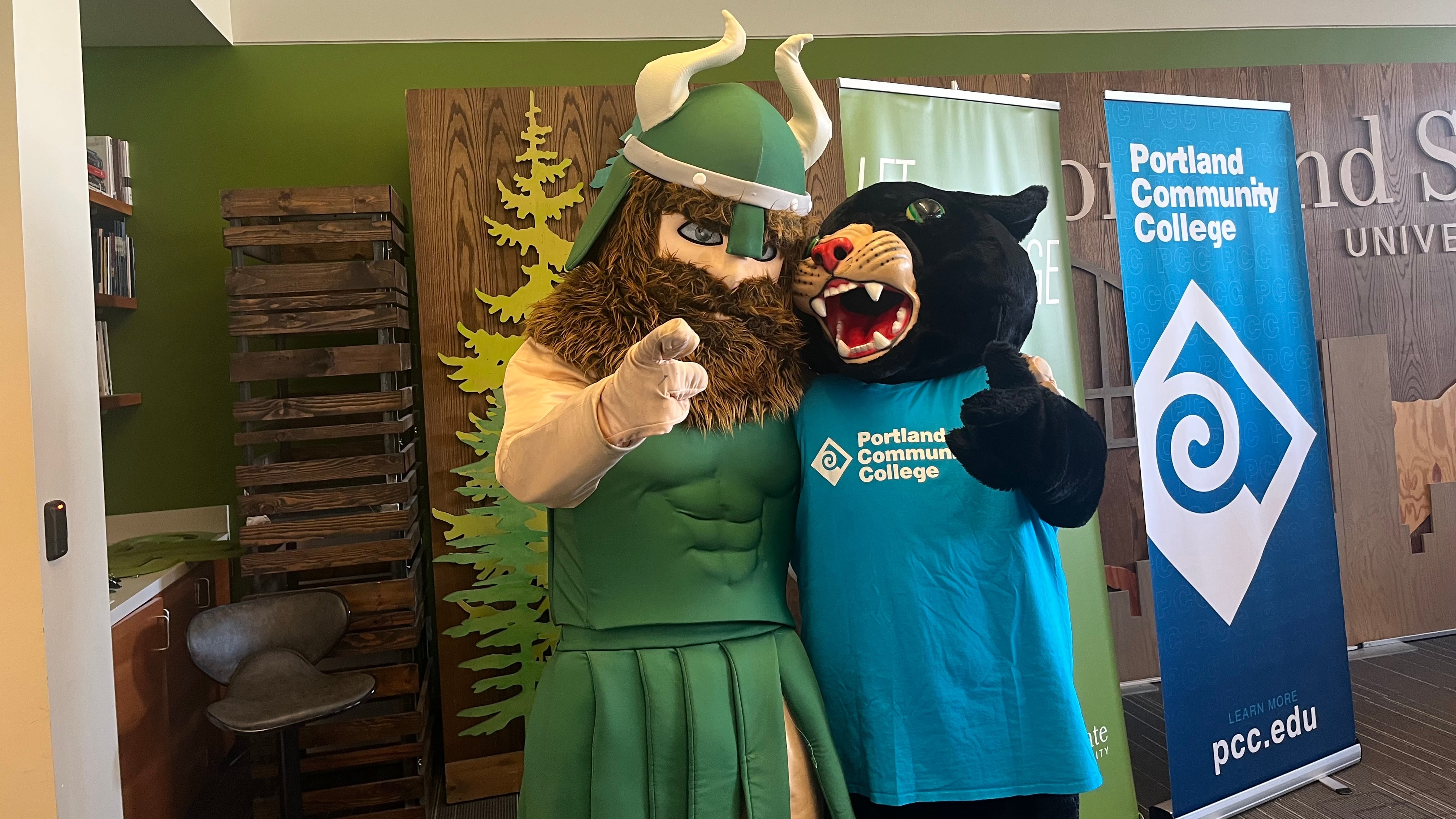Leaders of Portland State University and Portland Community College signed a memorandum of understanding on Friday afternoon to establish a formal partnership between the two higher education institutions with the goal of streamlining transfer pathways and achieving other shared educational goals.
The two institutions have formally partnered on smaller-scale initiatives for years, but this agreement will formalize a broader, long-term partnership in the hope of encouraging more students to use the PCC-PSU pipeline. More broadly, the memorandum also seeks to strengthen local career pipelines.
Central to the partnership is the planned development of the Strategic Transfer Excellence Plan, otherwise known as STEP, which would both coordinate programs between the two institutions and align curricula when possible. STEP should be implemented no later than January 2026, and is effective immediately after that.
The memorandum will also establish partnerships across support positions at both institutions, establishing stronger collaboration on everything from communications to financial advising.
“This agreement is about removing barriers, and that’s academic, financial, personal, and it’s more about building bridges between our institutions so students can move seamlessly from one campus to the next,” says PCC president Dr. Adrien Bennings. “It’s about aligning advising, academic programs and student support so that no one has to navigate the transfer process alone.”
The resolution comes as PSU has experienced an enrollment decline—more than 24% in the past five years. That number is partly attributable to a decline in PCC transfers as well. “Over the past three years, an average of 1,193 students each year transfer to PSU from PCC,” the memorandum reads. “However, this number has been falling since the pandemic.”
To keep implementation on track, the memorandum created several shared governance bodies between PCC and PSU. They include bodies overseeing academics and transfers, marketing, and the status of both institutions as minority serving institutions.
In announcing the partnership, the two school provided examples of the results they’re seeking to replicate.
Nadeem Hanayneh, a student at PSU pursuing a master’s with a specialization in geotechnical engineering, says he enrolled in PCC after high school because he wasn’t set on what he wanted to do and didn’t want to accumulate debt. (Oregon offers free community college.) A string of math classes encouraged him that it was possible for him to become an engineer. He graduated from PCC with an associate’s degree in general studies and then completed a civil engineering bachelor’s from PSU.
Hanayneh credits an academic adviser at PCC for piecing together a plan that made his transfer to PSU easy. A resource on the PCC website matched many of the civil engineering requirements at PSU with matches in the PCC course catalog. “I got really lucky,” he says of his experience. “PCC and PSU make the most sense to go hand in hand because they’re both very accessible and affordable.”
That’s the smooth experience both institutions want to extend to all potential transfers. PSU graduate student AJ Romero-Gemmell says that when it came time to transfer from PCC, he faced many points of confusion. The process was “daunting” as he struggled to understand what credits would transfer and what he would have to retake.
“I chose PSU because they understood what I needed as a transfer student,” Romero-Gemmell says. “PSU had people at the ready to answer my questions, understood what my previous college experiences looked like, and explained things in a way that made navigating a university easier to understand.”
The hope is that the partnership will strengthen perceptions of higher education in Portland, and expand access to underserved communities. Hanayneh spoke firsthand to the local value. Part of his work as a geotechnical engineer involves researching how silt soils perform under seismic loads, outlining how they might respond during a large-scale earthquake. That’s research that will serve the local community, he says.

